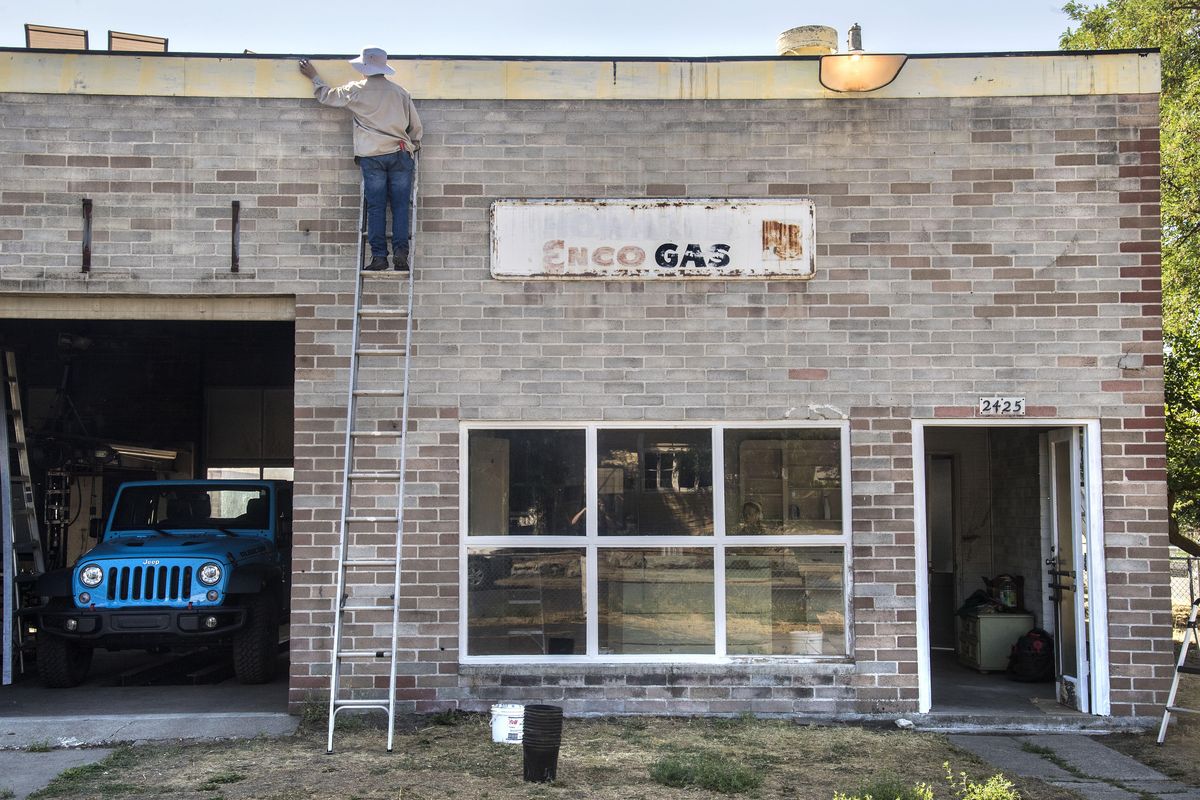Revitalization in mind, city weighs plan to reactivate dormant commercial buildings

Way back when, corner groceries and next-door bakeries were commonplace in neighborhoods, walking distance for everyday staples in the time before cars.
With the raging popularity of the automobile in the last century, neighborhoods homogenized, becoming purely residential. City planners set rules segregating where we live from where we shop.
A proposal before Spokane City Council this Monday aims to reverse a century of such planning, and bring back to life almost 50 formerly commercial properties that have slipped into disuse or been converted into living space. The buildings are situated along Inland Empire Way, on the South Hill; up north, in 20 of the city’s 27 official neighborhoods; and just about everywhere else. They’re decades old, many from the turn of the 20th century. One, in East Central, was built in 1895.
“I always tell people, if you like Rockwood Bakery on 18th off of Grand, that’s a great example of what this can do,” said Council President Ben Stuckart. “Or Batch bakery in West Central.”
The program to “activate” neighborhood commercial buildings would allow property owners to revert their structures back to commercial use. Buildings that have been converted into residences, like the old Cowley School building in Peaceful Valley or Frequency Changing Station overlooking Liberty Park and the Ben Burr Trail, won’t be forced to reclaim their commercial pasts.
There are 95 commercial buildings in residential zones, according to city data, and about half are still used for commercial purposes.
Nathan Gwinn, an assistant planner with the city, said this proposal will “help overcome a barrier to reinvestment.”
“The purpose behind this is to see some reinvestment in sites that are in disrepair and causing potentially a blight on neighborhoods,” Gwinn said. “It gives them a different option.”
Stuckart, who is behind the proposal, said the idea came when he was approached by members of the West Central Neighborhood Council in 2012 looking for a way to “enliven some of those buildings” in their neighborhood.
A pilot project was tested in West Central, but didn’t do much. Batch Bakeshop, 2023 W. Dean, is an example of what the program can do, Stuckart said. However, the owners of the building were allowed to change the use of the historic structure and bring the 112-year-old butcher shop back from 40 years as storage space because it’s on the Spokane Register of Historic Places.
Compared to the citywide proposal on the docket, Stuckart said the pilot project was too restrictive and not enough work was done to tell building owners about the project. Then George Thomsen approached Stuckart.
Thomsen grew up in Spokane’s South Perry District and still lives on the Altamont loop. He was there when Perry was a part of town people avoided, and now he’s there to watch the hip hordes descend for pizza, po’boys, beer pints and fresh farm produce.
A year and a half ago, he bought a long-defunct corner grocery store just north of the trendy strip. Right away, he knew what he wanted to do with it, but the city wouldn’t issue him commercial building permits.
“When I talked to the city, it came down to, ‘We all think there should be a way to do this, there just isn’t one,’ ” Thomsen said. “I can’t pull a commercial building permit because it’s not a commercial building. What this building is, to the city, is a single family home.”
The old store, which also housed a barber shop for a time, is on the corner of East Newark and South Laura. Thomsen, a contractor who owns the building with his business partner, Ryan Kelly, already has a tenant lined up: the Grain Shed.
Shaun Thompson Duffy has been a baker for ten years. For the past five years, he’s run an “underground bread subscription” in Spokane called Culture Bread. Before that, he kneaded dough in Chicago. Now he’s ready for his own bakery.
“If I lived on the coast, I’d serve seafood. But I don’t,” Thompson Duffy said. “We’ll have a grain-based menu. We’re using all local grain, from the Palouse, since we’re near the Palouse.”
Like Thomsen, Thompson Duffy has big plans, but he’s on hold until the city council votes on the proposal. He’ll bake bread and other pastries, serve lunch on the weekdays and brunch on the weekends. He has designs for a massive, wood-fired oven, ten feet tall and ten feet deep. He’s already contacted a builder in Medford, Oregon, to construct the oven – a three-week endeavor.
“We’ve had some unique conversations with the fire marshal,” Thompson Duffy said, with a wry laugh. “But I can’t start that until we get the permits.”
Thomsen, the building owner, echoes that frustration. The building’s exterior hints at its future, with reclaimed wood, but the inside is in shambles.
If the City Council passes the proposal on Aug. 21, Thomsen said his application for a conditional use permit “would be in on the 22nd.”
If all goes as planned, bread will be sold by the end of the year.
“Having places you can walk to and meet your neighbors is just huge for building community. It becomes a gathering place, improves safety, keeps the economy local,” he said. “I’m ready to reclaim this building’s past use.”